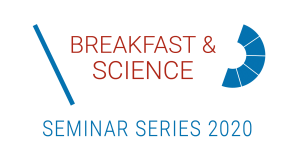Breakfast & Science Seminar 6
We are pleased to invite you to the sixth of the regular CIBM Breakfast & Science Seminar series for 2020 (every last Tuesday of the month):
Date and time: Tuesday June 30th, 2020 – 9:00 to 10:30 CEST
Location: Online seminar
Program
- 9:00-9:30: “Rodent Functional MRI applications at CIBM”, by Ting Yin, Research Staff Scientist, CIBM MRI EPFL Animal Imaging & Technology Section
Abstract
Functional MRI is a popular tool to measure brain activities. Due to the ability to non-invasively map whole brain function, fMRI is increasing used in rodent models. With the ultra-high field 14.1 T magnet in our center, both stimulus-evoked and resting-state fMRI are applied to investigate the brain function. In this talk, I will explain the current setups, technical capabilities and limitations of rodent fMRI at our center. Then discuss the effect of anesthesia, functional connectivity alteration measured under different anesthetic conditions. Finally I will illustrate how we adapt imaging processing pipelines for each application. - 9:30-10:00: “T2 Quantification from Super-Resolution Reconstructed Clinical Fast Spin Echo MR Acquisitions”, by Hélène Lajous, Research Staff Scientist, CIBM SP CHUV-UNIL Computational Neuroanatomy and Fetal Imaging Section
Abstract
Early brain development encompasses many crucial structural and physiological changes such as myelination that have an impact on health later in life. Quantitative MRI (qMRI) has provided biomarkers of subtle changes in brain tissue microstructure associated with abnormal developmental patterns in preterm and at-term newborns (1,2). In utero, the study of brain maturation is even more challenging. Fast spin echo sequences are used in clinical routine to minimize the effects of unpredictable fetal motion during acquisition. Technical developments have been carried out by applying advanced Super-Resolution (SR) reconstruction techniques to the morphological analysis of MR images of the fetal brain (3,4), thus opening up new avenues to unravel the mystery of early brain maturation. SR reconstruction aims at combining orthogonal low-resolution scans of thick 2D slices into an isotropic high-resolution volume with reduced motion sensitivity. In this context, the combination of quantitative acquisition schemes and SR techniques may enable for the first time fast and accurate T2 relaxometry of the in vivo fetal brain. This work, which is supported by the Swiss National Science Foundation (SNSF), demonstrates the feasibility of using SR reconstruction from conventional Half-Fourier Acquisition Single-shot Turbo spin Echo (HASTE) sequences for repeatable, precise and robust 3D T2 mapping on a quantitative MR phantom. Simulations provide an interesting framework for further investigation and validation of new techniques (5). Since motion is crucial in fetal MRI, the second part of my presentation will focus on a numerical fetal brain phantom that we are currently developing to explore the feasibility of our high-resolution 3D T2 relaxometry strategy in a context of motion-corrupted fetal imaging. - 10:00-10:30: Short introduction by audience members and Interactive sharing session
Please register by Monday June 29, 2020, 12:00 at the following link: https://epfl.zoom.us/meeting/register/v5YsdOGqqzIt2JvJC30eZwAOkGDtlkn3hQ
After registering, you will receive a confirmation email containing information about joining the meeting.
We look forward to seeing you soon.

Date
- 30 Jun 2020
- Expired!
Time
- 9:00 am - 10:30 am
Location
- Virtual
